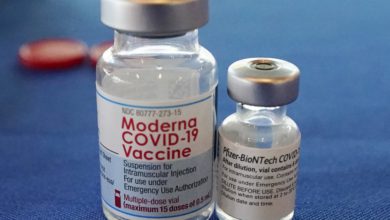A dominant American middle distance runner says she has been banned for four years after testing positive for an anabolic steroid that she believes came from pork in a burrito.
Shelby Houlihan, the reigning national champion and American record-holder at both 1,500 and 5,000 meters, wrote on social media Monday that she was provisionally banned by the Athletics Integrity Unit after testing positive for nandrolone, which has been found in pork. She said she appealed the ruling to the Court of Arbitration for Sport and was informed Friday that it did not accept her explanation.
"I feel completely devastated, lost, broken, angry, confused and betrayed by the very sport that I’ve loved and poured myself into just to see how good I was," the 28-year-old wrote in an Instagram post.
"I want to be very clear. I have never taken any performance enhancing substances. And that includes that of which I am being accused."

The AIU – which runs the anti-doping program for track and field's international governing body, World Athletics – had not announced Houlihan's ban as of Monday evening. Spokespeople for the group did not immediately reply to an email seeking comment.
The news comes less than a week before the start of the U.S. Olympic Trials in Eugene, Oregon, and a little more than a month before the 2021 Tokyo Olympics, where Houlihan was expected to contend for a medal.
Jerry Schumacher, who coaches Houlihan as part of the Bowerman Track Club, called Houlihan's ban "a great tragedy in the history of American distance running" while lambasting the international organizations that design anti-doping protocols.
"Throughout this process we were confident that the truth would lead to justice," he wrote in a letter posted on the club's web site. "What I’ve come to learn instead is that anti-doping authorities are okay with convicting innocent athletes so long as nine out of ten convictions are legitimate. That is wrong."
According to Houlihan's post on Instagram, she tested positive for nandrolone on Dec. 15. When notified of the result by email one month later, she said she "had to read it over about ten times and google what it was that I had just tested positive for."
In the next five days, Houlihan logged all of the food that she ate around the time of the test, according to her Instagram post. She later learned that researchers have linked trace amounts of nandrolone with the consumption of boar meat or pork, including offal, which consists of a pig's organs.
"We concluded that the most likely explanation was a burrito purchased and consumed approximately 10 hours before that drug test from an authentic Mexican food truck that serves pig offal near my house in Beaverton, Oregon," Houlihan explained.
Houlihan noted that the presence of nandrolone in her sample was classified as an adverse analytical finding rather than an atypical finding – a small but important distinction in the world of anti-doping. An atypical finding is less serious and would have simply triggered further investigation, rather than a provisional ban.
"They could have reported this as an atypical finding and followed up with further testing," Houlihan wrote. "The anti-doping experts I have reached out to say they should have."
Houlihan is the latest in a long line of athletes who have cited contaminated meat as the source of their positive doping test.
In 2010, a coach for Chinese judoka Tong Wen cited pork chops as the reason she tested positive for clenbuterol, which increases lean muscle and reduces body fat. Tour de France winner Alberto Contador blamed his positive test on bad beef. And boxer Tyson Fury, who tested positive for nandrolone in 2015, pointed to wild boar meat as the reason for his result.
"Inadvertent doping due to the contamination of meat or medication is a very complex issue, especially in light of the ever-growing levels of sensitivity achieved in the detection of prohibited substances by WADA-accredited laboratories," Olivier Rabin of the World Anti-Doping Agency said in a statement last month, as its "contaminants working group" continued to examine how it deals with positive tests potentially caused by contaminated meat and other substances.
A 12-time All-American at Arizona State, Houlihan had emerged in recent years as one of the United States' premier talents at the middle distances, particularly 1,500 meters. Since 2017, the Iowa native has won five indoor national titles and three outdoor national titles. She reached the Olympic final and placed 11th at 5,000 meters in Rio.
According to data compiled by the U.S. Anti-Doping Agency, Houlihan has been drug-tested at least nine times so far in 2021. She took at least 16 tests last year, 15 in 2019 and 10 in 2018. The figures only include tests that were requested or initiated by USADA.
Contact Tom Schad at [email protected] or on Twitter @Tom_Schad.










